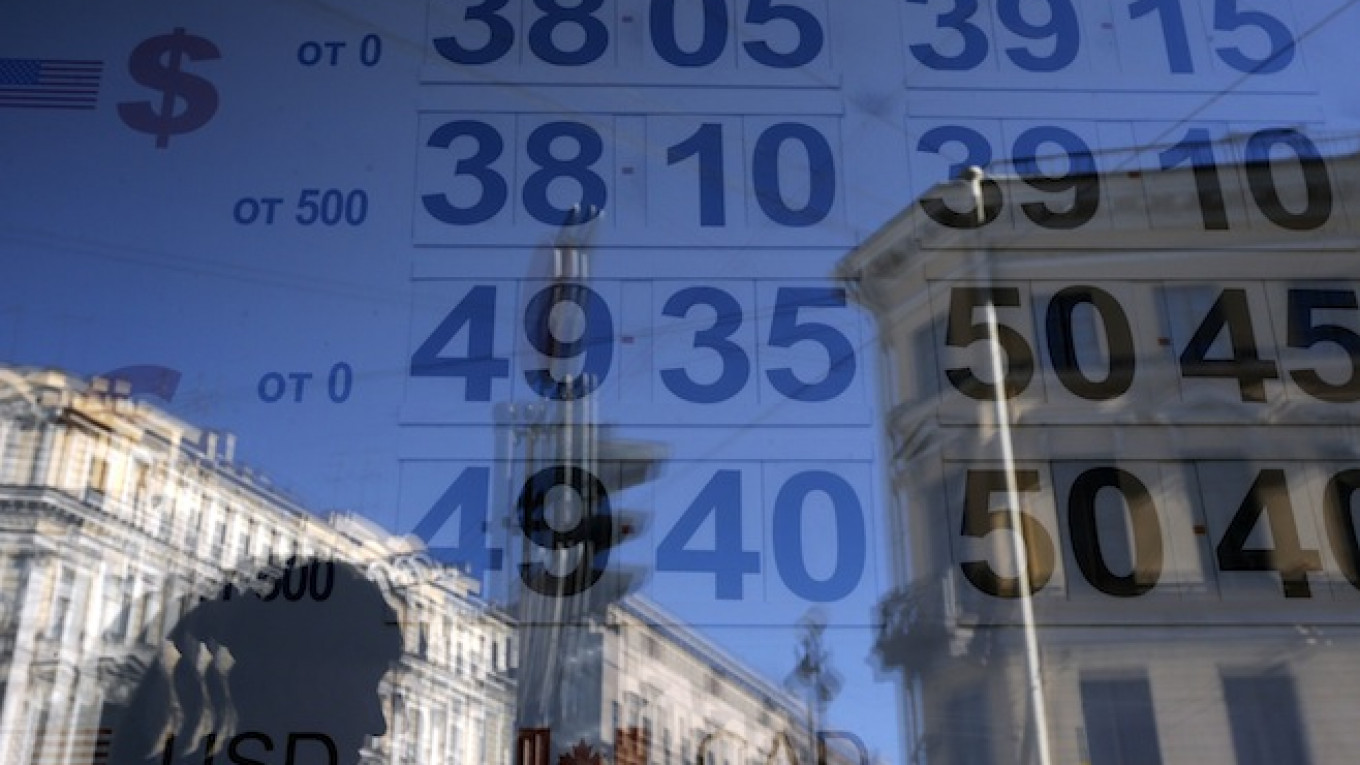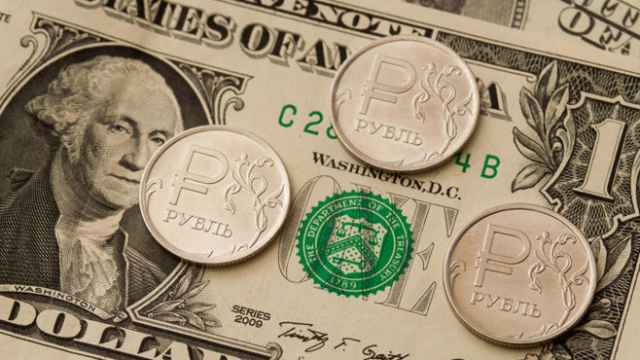Russia approved a fragile budget on Thursday that promises to cover generous social spending and control borrowing, but relies on high oil prices and reserves to try to overcome the economic damage of Western sanctions.
For months Russian officials have played down the impact of the punitive measures imposed by the European Union and United States over Moscow's policy on Ukraine which have curbed access to foreign capital, hurt investment and sent the ruble to lows.
But in the 2015-2017 budget, the tightest since the 2008 global crisis, the government may for the first time in six years be allowed to tap its rainy day reserves — a sign it will struggle to cover social promises by President Vladimir Putin.
Admitting that macroeconomic stability was a "fragile" thing, Prime Minister Dmitry Medvedev told his ministers the state will not borrow excessively and will keep spending tight.
"This is the first time when work on the federal budget, the three-year budget, took place in such difficult circumstances, when an economic slowdown was exacerbated by the implementation of sanctions," Medvedev said.
"The main problem that we face today is the high level of uncertainty when it comes to how fast trust will return, how soon businesses become interested in investing, how the consumer market grows and what steps our partners will take."
The economy is expected to grow 0.5 percent at best this year, down from forecasts of 2.5-3.0 percent at the beginning of the year.
The budget foresees a struggle to tame inflation and a falling ruble, and depends on an optimistic assumption for the price of oil, Russia's main source of income, at $100 per barrel. Urals, the country's chief crude blend, stood at around $95 per barrel on Thursday.
"It seems that the Russian government is quite comfortable with the oil price and with its reserves, but the proper effect of the sanctions comes with a lag," said Vladimir Miklashevsky, an economist at Danske Bank.
At a meeting with senior officials, Putin said Russia's best response to sanctions was to boost the domestic market.
"God will judge them, it's their decision," he said at a meeting with government and Central Bank officials. "Our main goal is to make use of one of the major competitive advantages of Russia: a large domestic market. Fill it with competitive, high-quality goods, which make up the real sector of the national economy."
What Investment?
The health of the Russian economy and the ability to supply the market with goods and cash has depended in post-Soviet years on investment, both foreign and domestic.
After returning to the presidency two years ago, Putin ordered the government to shake up state-run industries and to take measures to raise capital investment to no less than 25 percent of annual economic output in 2015.
But after sanctions, capital outflows are expected at $100 billion this year and capital investment is expected to decline by 2.4 percent.
Economy Minister Alexei Ulyukayev said the arrest of billionaire Vladimir Yevtushenkov on money laundering charges had hurt, not helped, Russia's business climate. These marked the first critical comments by an official since the chairman of Sistema, a telecoms-to-oil conglomerate, was put under house arrest on Tuesday.
"This is certainly reflected in the investment climate. It is clear that the suspicion that there is some economic motive behind this complicates investors' decision-making," Ulyukayev told reporters, adding that the situation could spur capital flight.
Social Spending
The budget sees slower public wage increases, but nonetheless allocates 57 percent of its spending to social causes, chiefly supporting Putin's main electorate — pensioners and state sector employees.
Slower wages rises, economists say, are the price Russia must pay for not introducing a sales tax in the next three years. "We ... note that the decent growth in public wages has been the only factor keeping the headline real wage growth from falling into negative territory," Dmitry Polevoy, chief economist for Russia at ING, said in a note.
Medvedev assured the country's 40 million retired people that 2.5 trillion rubles ($65 billion) in the next three years will go towards pension payments, subsidies and various allowances. "We will continue to increase the salaries of state employees: teachers, medical personnel, social workers, academics," he said.
ING estimates that nominal private sector wage growth slowed to 6.6 percent year-on-year in June, falling well short of both annual inflation — which is now at 7.7 percent — and the equivalent figure for public sector workers at 12.2 percent.
The weighted-average nominal wage in the public sector, such as public administration and education, stood at 35,200 rubles against 23,000 rubles in the private sector.
"We strongly doubt this is fundamentally justified, given all the concerns on public sector productivity and extensive inefficiencies," Polevoy said.
A Message from The Moscow Times:
Dear readers,
We are facing unprecedented challenges. Russia's Prosecutor General's Office has designated The Moscow Times as an "undesirable" organization, criminalizing our work and putting our staff at risk of prosecution. This follows our earlier unjust labeling as a "foreign agent."
These actions are direct attempts to silence independent journalism in Russia. The authorities claim our work "discredits the decisions of the Russian leadership." We see things differently: we strive to provide accurate, unbiased reporting on Russia.
We, the journalists of The Moscow Times, refuse to be silenced. But to continue our work, we need your help.
Your support, no matter how small, makes a world of difference. If you can, please support us monthly starting from just $2. It's quick to set up, and every contribution makes a significant impact.
By supporting The Moscow Times, you're defending open, independent journalism in the face of repression. Thank you for standing with us.
Remind me later.






